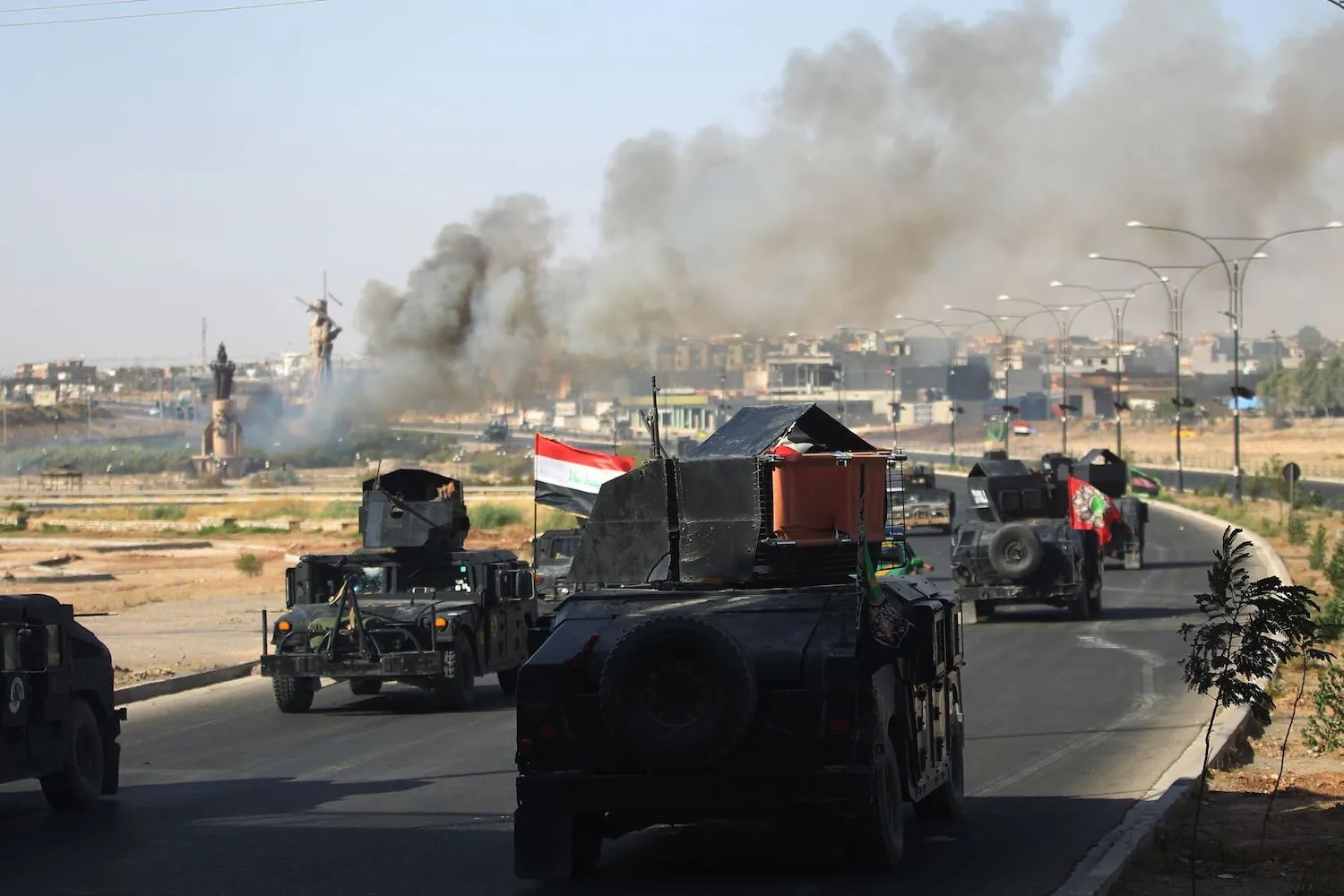The Custodian of the Two Holy Mosques King Salman bin Abdulaziz briefed the Cabinet Tuesday on a telephone conversation he held with Iraqi Prime Minister Haider al-Abadi during which the King stressed Riyadh's support for Iraq's unity, security, stability, and the adherence of all parties to the country’s constitution for the interest of Iraq and its people.
The King chaired the Cabinet session at Al-Yamamah Palace in Riyadh on Tuesday afternoon.
Meanwhile, as Kurdish Peshmerga forces continued to gradually withdraw from the disputed areas between Baghdad and Irbil, Abadi announced that the Kurdistan region’s referendum on independence is over.
“The referendum is finished and has become a thing of the past,” Abadi said in a press conference on Tuesday.
He called for a dialogue with the Kurdish leadership "under the Constitution.”
For his part, Kurdistan President Masoud Barzani said that after the withdrawal, the new borders between the Peshmerga and Iraqi forces would be as they were before the Mosul operation launched on Oct. 17, 2016.
However, Barzani said: “The loud voices you raised for the independence of Kurdistan that you sent to all nations and world countries will not be wasted now or ever.”
Meanwhile, Iraqi President Fouad Massoum held the Kurdistan Region president, without naming him, responsible for what happened in Kirkuk.
In a statement, Massoum said that he had exerted immense efforts to reach a solution between the Iraqi government and the Kurdistan Region government, but said the “latter insisted to hold the referendum.”
The president also called on all parties to engage in urgent dialogue to prevent a worsening of the crisis in Iraq and he reminded everyone that they should resort to the constitution to solve the crisis in Kirkuk.
On Tuesday, the Peshmerga forces withdrew from the disputed area of Khanaqin, near the border with Iran.
Meanwhile, Reuters quoted oil officials in Baghdad as saying that all the fields near Kirkuk were working normally on Tuesday after coming under the central government’s control.
Reuters said Iraq’s dollar-denominated bonds jumped nearly one cent on Tuesday, more than making up for Monday’s losses.









